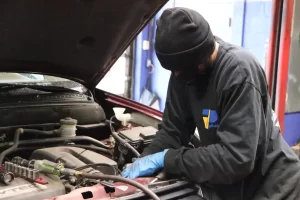Customers depend on your experience and knowledge to diagnose and repair their vehicles, whether you become a mechanic for a dealership or repair shop. Auto mechanics can make blunders occasionally. Small details could go unnoticed, parts might be installed too fast, and the wrong fluids might occasionally be utilized. These mistakes can usually be swiftly fixed because mechanics are typically overworked when they make them. Want to become a mechanic? Continue reading for a fast guide to several mistakes you should not make or do in auto shops, as well as information on how to prevent them from happening to you in the future.
It’s critical to have faith in your talents as a mechanic, particularly if you have instruction from a renowned college. However, overconfidence happens when a mechanic training on a repair, even if they are clearly in over their heads. Of course, this can harm a car more than help it should not be a surprise.
Ask a more experienced auto mechanic program for assistance if you ever get stuck while completing a diagnosis or repair. You can come across a car model you’re unfamiliar with or a car that uses cutting-edge auto technology you’ve never used. It’s okay not to know everything, and getting assistance might help you come up with fresh ideas for dealing with different auto issues.

It’s crucial to take the time to conduct a thorough diagnosis while dealing with auto issues. When a technician depends solely on expertise, they may make snap judgments that cause incorrect repairs or cause routine fixes to take much longer than they should.
Let’s imagine a client arrives with a burning scent from their vehicle. The car’s low transmission fluid level is one of the most frequent and apparent causes of this, and many mechanics will just check fluid levels and top them off if necessary. However, after taking an auto mechanic course, you’ll discover that there are almost a dozen causes for a car’s engine to smell burning. These problems can include fluid leaks, faulty oil gaskets, and more. Therefore, even if you think you know what the problem is, always confirm your assumptions and perform a complete diagnostic check.
Mechanics are frequently exempt from having direct client interactions. In actuality, customers’ main points of contact frequently include store managers and service advisers. In light of this, it’s crucial for technicians to be aware of and keep in mind that when it comes to getting their vehicles serviced, clients typically look for three things:
Customers are angry when businesses perform poorly in any of these three categories. In the fiercely competitive auto industry, auto mechanic training frequently overlooks the needs of the consumer, which can harm both their success and the standing of their employer. Therefore, it is imperative to carefully consider the client’s needs when maintaining their vehicle.
The general safety guidelines listed below should be used by every repair company as mechanic tech to keep everyone safe.
Read More: